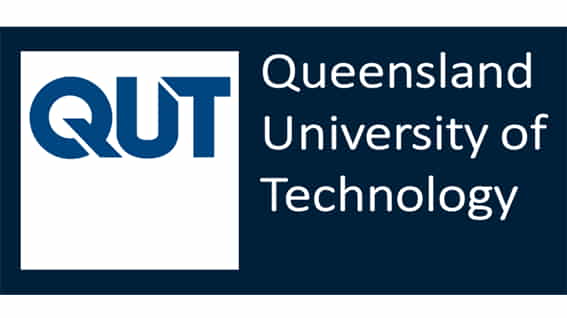Last Date: 02-Jan-2024.
Who are we looking for?
We are seeking a Senior Postdoctoral Researcher – Human Microbiome to join School of Biomedical Sciences, Faculty of Health, Academic Division.
Microorganisms have a profound influence on biological, environmental, and industrial processes, but understanding the complex dynamics of microbial communities and how to manipulate them to our advantage remains a challenge. CMR Director Professor Gene Tyson has recently been awarded a prestigious ARC Laureate Fellowship that aims to overcome current technological limitations and transform microbial ecology from a descriptive to a predictive science. This will be achieved using as a model the most intensively studied ecosystem on the planet: the human gut microbiome. The Fellowship program will deliver new tools for integrated meta-omic analysis, a biobank featuring thousands of novel microorganisms from the human gut, and machine learning models to predict how entire microbial communities will respond to changes in their environment. The successful candidate will join this exciting project to drive new methods in machine learning for i) microbial protein annotation and ii) characterising how microbial communities respond to environmental changes (e.g., diet or therapeutics) using integrated multi-omic analysis. The role is open to a broad range of applicants with experience in human microbiome research, including in fields such as microbial metabolism, multi-omics analysis, biochemistry, molecular biology and immunology.
Real world impact
QUT is a major Australian university with a global outlook and a ‘real world’ focus. We are an ambitious and collaborative institution that seeks to equip our students and graduates with the skills they will need in an increasingly disrupted and challenged world.
About the area
The Centre for Microbiome Research (CMR) was established in 2020. Professor Tyson and his team are actively involved in the development of innovative culture-independent molecular approaches and bioinformatic tools, and their application to answer important questions about microbial communities across a range of ecosystems. The team is made up of researchers with diverse expertise spanning microbial ecology, multi-omics, bioinformatics and synthetic biology, providing an intellectually robust and collaborative environment. The Centre is located within the Translational Research Institute (TRI), a unique multidisciplinary facility located at the Princess Alexandra hospital with a strong focus on translational research. This positions the team amongst top researchers and clinicians from diverse disciplines such as genomics, bioinformatics, immunology, oncology and gastroenterology, and provides the team with access to state-of-the-art core facilities. The Centre also has a dedicated PC2-certified laboratory fully equipped for molecular biology that includes an in-house white light laser confocal microscope (Leica), a PromethION (Oxford Nanopore Technologies) and access to a NovaSeq 6000 (Illumina). The Centre has a BD FACSAria Fusion fluorescence activated cell sorter with small particle detection and liquid handling robots for single cell genomic and culturing work, and maintains anaerobic culture and quarantine facilities. CMR houses its own high-performance computing resources consisting of >1,000 cores and 9 nodes. The operation of these facilities is supported by professional staff for microscopy, flow cytometry, sequencing and bioinformatics..
What you need to succeed
- Education, training and/or relevant experience equivalent to the completion of a PhD in a relevant field (e.g., microbial ecology, molecular biology, immunology, bioinformatics).
- Four years postdoctoral experience and demonstrated knowledge of bioinformatics and coding languages.
- Demonstrated ability to work collaboratively within a multi-disciplinary team, along with proven ability to autonomously organise and prioritise tasks and workflow to meet project deadlines.
- High level communication skills, including demonstrated written communication skills and strong interpersonal skills.
- Ability to problem solve, logically plan and coordinate research activities, and critically assess existing literature and methods.
Life at QUTWe’re committed to building a culture that fosters connection between people and purpose. Beyond personal and professional fulfillment, a career at QUT offers:
- A healthy work-life balance with a blend of on-campus and off-campus work arrangements for applicable positions.
- Competitive remuneration with up to 17% superannuation.
- Generous maternity leave including primary carer parental leave of up to 26 weeks (including 17% super).
- Stay healthy with Fitness Passport and enjoy discounted rates on private health insurance.
- Leave loading of 17.5%.
- Purchased Leave Scheme – up to 8 extra weeks.
- Salary Packaging Scheme for additional superannuation contributions, vehicle leasing, and on-campus services such as childcare, parking, and gyms.
- Numerous opportunities for professional development including leadership programs and workshops, and our study assistance scheme.
- Commitment to our Indigenous Australian staff through initiatives such as the Indigenous Australian Staff Network, Cultural and Ceremonial Leave, Staff Development Workshops, and representation on university committees.
- We see diversity and inclusion as our strengths.
- Explore more benefits of life at QUT.
Belong at QUT
We are guided by our values of Ambition, Curiosity, Integrity, Inclusiveness, Innovation, and Academic Freedom and our QUT Connections in our mission to inspire and shape the next generation of change-makers.
In support of our Indigenous Australians Employment Strategy, we aspire to an Indigenous Australian workforce participation of 3.6% and we encourage Aboriginal Australians and Torres Strait Islander people to join us in pursuing a fulfilling career.
We believe in creating safe spaces for inclusivity to flourish and we know that diversity is our strength – see our commitment. If you’re curious, innovative, and ready to experience what a career at QUT can offer, we’re ready to meet you.
Reference number: 231028
Term: Fixed-term, full-time basis for three (3) years
Remuneration: $AUD125,576 to $AUD149,137 pa (LEVB) (inclusive of $AUD106,113 to $AUD126,022 salary pa, 17% superannuation and 17.5% recreation leave loading)
Location: Translational Research Institute
Job opens:
Applications Close: 02-Jan-2024 at 11.30pm
Find out more and apply by clicking Apply or the link below.






